Monsoons in India bring the greenery and calmness back into town. I love to relish on those pakoras and sip hot chai. However, this season also gives rise to plenty of illnesses and diseases specially in areas where hygiene is low or absent. Some of the common illnesses are cold, cough, fever, malaria and pneumonia. This year, the rampant rains in different parts of India led to an outbreak of conjunctivitis in Delhi, Mumbai and some parts of Himachal Pradesh. Eastern Madhya Pradesh, where I live, was no exception to this situation.
As per my colleagues working here since a long time, it was a first for Anuppur district to witness a spur in conjunctivitis. There was a rampant spread in the months of July and August. I found it a bit funny to see everyone wearing the black goggles at work, as if we secret agents like in the movie ‘Men In Black’. Thankfully, it didn’t spread much into the villages. But, as heavy rains flash in the villages, people live in a wet atmosphere for 3-4 months straight. This gives rise to water borne diseases. Every year during this time, the need for a fever clinic arises.
What Is A Fever Clinic?
It’s like medicine on wheels. A vehicle carries all the required pills and syrups, and distribute them all along a pre-decided route. A doctor or another medical expert accompanies to check the patients and give them the medicines with appropriate dosage.
Jan Swasthya Sahyog (JSS), the organisation I’m working with, organises fever clinics when there’s a need. Our colleagues on field regularly keep the superiors informed about the location and the approximate quantity of medicines that would be required. The ASHA worker of the village and her designated helper also help the JSS team in conducting fever clinics.
In the last two years, From May 2021 to September 2023, JSS has organised 242 mobile fever clinics in Madhya Pradesh, where 30,759 total patients visited. Since I joined in June, I have been able to visit a few of the fever clinics to support wherever the team needed an extra pair of hands.
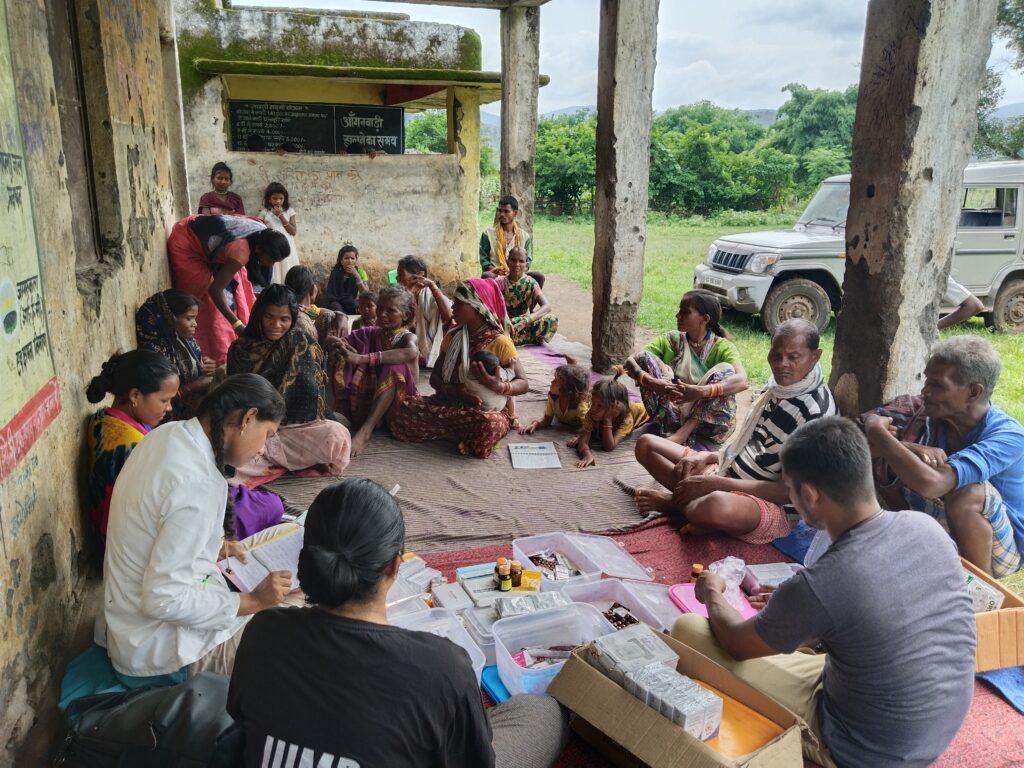
Niche Silwaari
Recently, a fever clinic was held in a village called Niche Silwaari. It is situated on a hill. There is only one access road to this village which becomes inaccessible when it rains heavily and the soil becomes loose. We chose a day when the road was dry since it had not rained for a couple of days. The clinic was to be held at the Anganwadi (rural child care centre) situated right at the entrance of the village. We arrived around 11 am. Some people were already waiting for us. On seeing us, the ASHA’s helper ran to the village to bring the other patients.
I started taking out the medicines and medical equipment like the BP machine, thermometer, etc. from the vehicle, and arranged them at the centre. We had to be quick as it was speculated that rain would soon begin. The patients from all age groups started coming for check-ups one by one. Almost everyone had ongoing health issues and some of them had prolonged illnesses like diabetes, blood pressure, and arthritis which worsened during monsoon. They were familiar with our organization and some of the staff members.
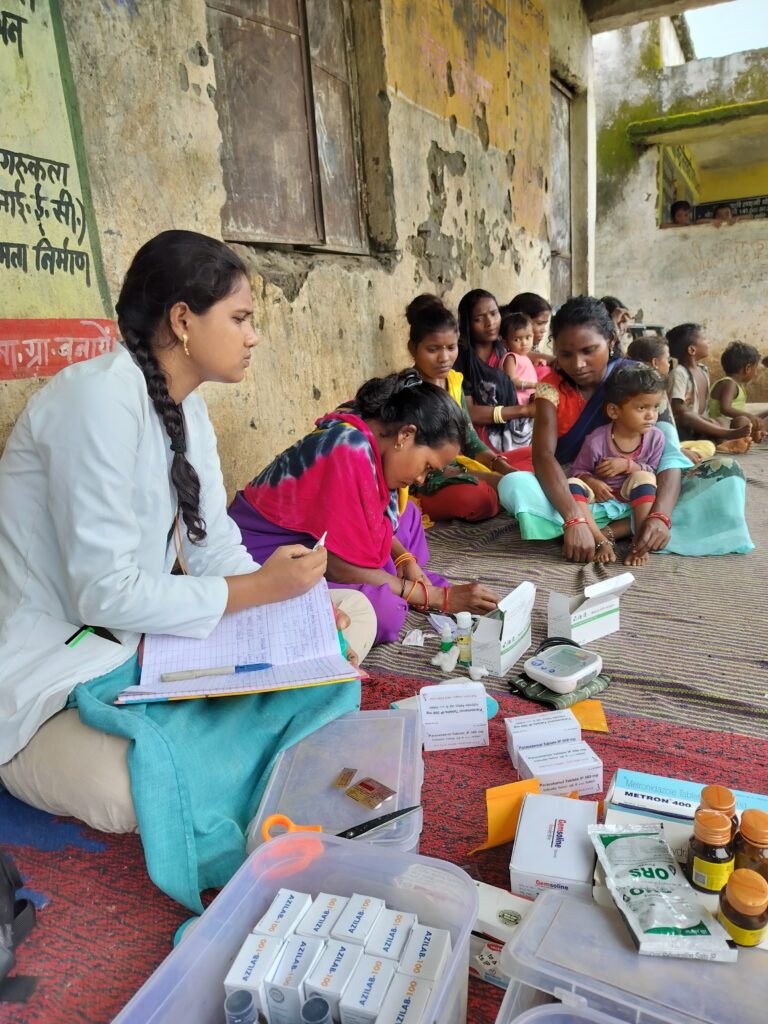
Gaining perspective
Our program lead, Vinay Kumar Vishwakarma had accompanied us that day to inspect the overall situation. While talking to people, he he started enquiring about other issues that they might be facing, health or non-health related. One common thing that cropped up was pension stuck with the government. He collected data of the people who complained about it, and assured them that he will look into it. I was perplexed by this gesture. So, I asked him why he did that since only health related issues came under our domain of work.
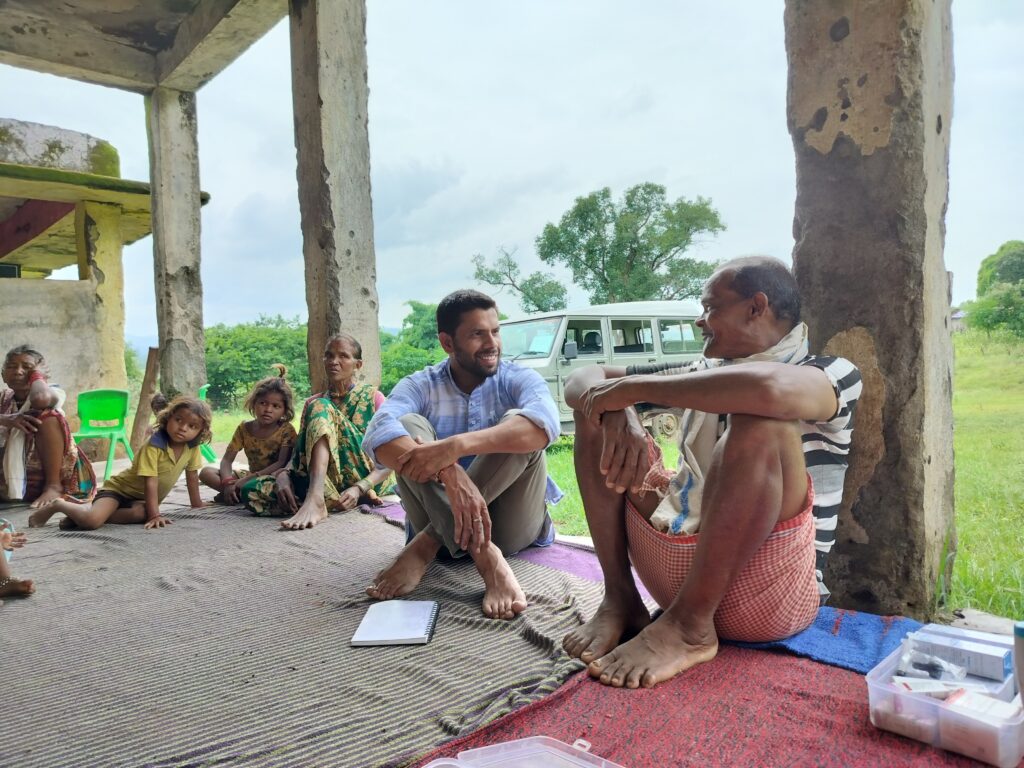
He explained that as a civil society organization, we try to cater to their other problems too as a means to support them as well as build trust. A few months ago, Vinay had helped a farmer solve an issue pertaining to his land by contacting government authorities and local politicians.
When the villagers see us engaging with authorities like government officials, they begin to think that this organization has power to deal with issues and get things done. The next time we approach them for anything, they are more cordial and ready to cooperate. That’s why we see so many people taking advantage of the fever clinics.
– Vinay Kumar Vishwakarma
I gained a new perspective on ways to engage with the community and finding a common ground. Through Vinay’s methods, the community gets acquainted with their legal rights and entitlements such as pension and land which is rightfully theirs. If not for organisations like JSS, people here would be unaware of the facilities (medical, educational, land related) that are available and can become accessible to them.
Referral help
Back at the fever clinic, people were lining up in large numbers. We had enough stock of medicines to cater to everyone which was a relief. A few of them above 50 years of age were suffering from non-seasonal diseases like sickle cell, diabetes, blood pressure, loose bones, poor eyesight and so on. They were referred to the district hospital but as they cannot afford to travel, ambulances were arranged for them to be taken to the city. Some did not want to go thinking they would be left alone in the hospital. After much counselling and convincing that there would be people from our team to guide them, they agreed.
As the fever clinic came to an end, it started drizzling. We wrapped things up as we did not want to get stuck in this village. Visiting a pregnant woman for a check-up in another village, was next on our list.
Thoughts
While coming back, a bunch of questions were on my mind. What would happen if JSS does not organise the fever clinics? Would the sick remain sick then? Will the people suffering from prolonged illnesses not seek medical help on their own? If there is no outside intervention, will people in villages and communities like these talk about their problems? I don’t have the answers right now but striving to look for them.

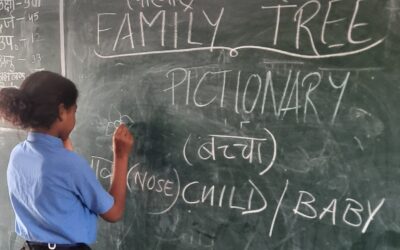
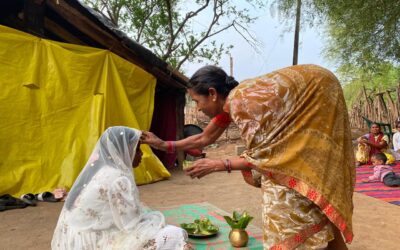
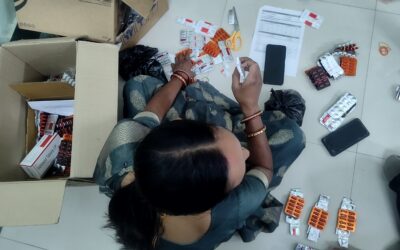
0 Comments